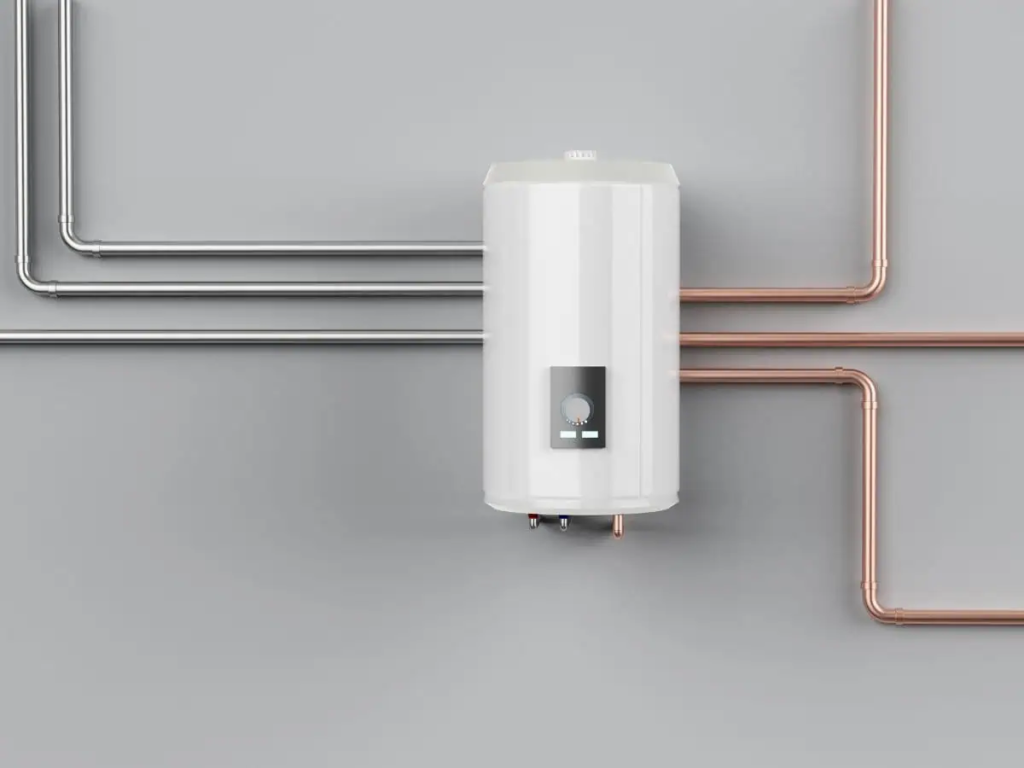Why Does My Boiler Keep Turning On and Off? Here’s How to Fix It
If you’ve ever found yourself shivering in your own home, only to hear your boiler fire up for a few minutes and then fall silent again, you’re not alone. This frustrating cycle—known as “short cycling”—is a common problem for homeowners in Newcastle and the North East. The boiler’s internal thermostat plays a crucial role by detecting the temperature inside the heat exchanger. When the water temperature drops below a certain temperature, the thermostat triggers the boiler to reheat the water, which can lead to short cycling if not properly managed. The thermostat’s temperature setting determines exactly when the boiler cycles on and off to maintain the desired temperature. Not only does short cycling make your home less comfortable, but it can also drive up your energy bills, increase carbon emissions due to greater fuel consumption, and put unnecessary strain on your heating system. In this comprehensive guide, we’ll explore why your boiler keeps turning on and off, what you can do about it, and when it’s time to call in the professionals, including a gas safe engineer, at Premier Gas.
Introduction to Boiler Issues
Boiler issues can be frustrating and uncomfortable, especially during colder months. A boiler turning off repeatedly can be caused by various factors, including overheating, low pressure, gas appliances and short cycling. Many modern boilers display an error code or fault code on their digital interface, which helps diagnose the specific issue and guides troubleshooting. It’s essential to identify the root cause of the problem to apply the correct fix. Some issues can be rectified by the homeowner, while others require the expertise of a Gas Safe registered engineer. Understanding the common causes of boiler problems can help homeowners take proactive steps to prevent them.
Understanding Boiler Short Cycling
Boiler short cycling occurs when your heating system turns on and off more frequently than it should, often before your home has reached the desired temperature. This isn’t just a minor annoyance-it’s a sign that something isn’t right in your central heating system. Each time your boiler starts up, it uses a surge of energy, and frequent cycling can reduce its efficiency from as high as 85% down to 70% or less. Over time, this pattern of operation can lead to premature wear and tear, costly repairs, and even a shortened lifespan for your boiler.
One key factor in this process is the boiler’s internal thermostat, which manages the temperature of heated water within the boiler’s heat exchanger. When the heated water in the heat exchanger cools down, the thermostat detects this drop and triggers the reheating process, leading to a cycle of reheating that can cause short cycling. This not only increases fuel consumption and associated costs but can also overload the heat exchanger, potentially reducing its lifespan.
But why does this happen? The answer lies in a combination of technical issues, system design, and sometimes even user habits. Frequent short cycling can result in higher fuel bills for homeowners due to increased energy usage. Let’s break down the most common causes and what they mean for your home.
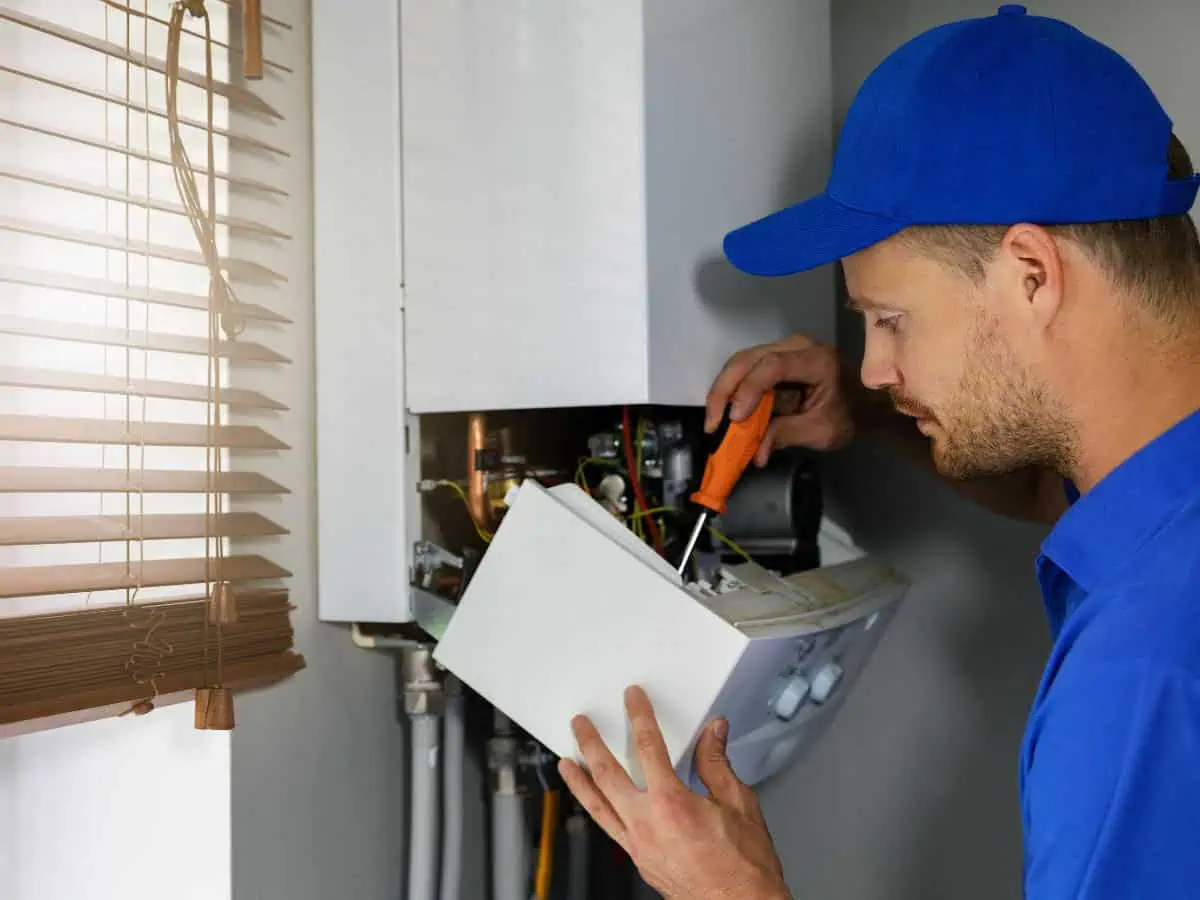
The Most Common Causes of Boiler Short Cycling
Thermostat Troubles
The thermostat is the “brain” of your heating system, telling your boiler when to turn on and off. If it’s not working properly, your boiler may receive mixed signals. Sometimes, the thermostat is placed in a location that doesn’t accurately reflect the temperature of your living space-perhaps near a drafty window, a radiator, or in direct sunlight. In other cases, the thermostat itself may be outdated or malfunctioning, causing it to misread the temperature and send your boiler into a cycle of constant starts and stops. Even something as simple as low batteries, loose wiring, or fault lights can disrupt the communication between your thermostat and boiler. A faulty thermostat can lead to inaccurate temperature readings and erratic boiler behavior, causing the boiler to shut off unexpectedly or cycle too frequently.
Boiler Pressure Problems
Boilers are designed to operate within a specific water pressure range, usually between 1 and 1.5 bar when cold. Maintaining the correct water pressure is crucial for proper boiler operation. If the water pressure drops too low-often due to a leak or after bleeding radiators-the boiler’s safety mechanisms will result in the boiler shutting down unexpectedly to prevent damage. Conversely, if the water pressure is too high, perhaps from overfilling or a faulty expansion vessel, the system may also shut off to avoid risk. Too much pressure can lead to erratic boiler behavior, potential overheating, and the need for frequent repairs. Both low and high water pressure scenarios can result in your boiler shutting on and off repeatedly, never quite settling into a steady rhythm.
Oversized Boilers and System Design
Believe it or not, bigger isn’t always better when it comes to boilers. An oversized boiler will heat your home too quickly, causing the thermostat to reach its set point before the system has completed a full, efficient cycle. If your current boiler is oversized or was not properly matched to your home’s needs when the boiler was installed, short cycling is more likely to occur. The result? The boiler shuts off, only to restart a short time later as the temperature drops. This is a surprisingly common issue, especially in older homes where the heating system may have been upgraded to a new boiler without a full assessment of the property’s needs. According to industry research, incorrect heat load configurations and multiple boilers operating at low fire can also contribute to short cycling. Additionally, an oversized boiler can produce more steam than necessary, leading to short cycling and increased energy costs.
Air and Limescale: The Hidden Culprits
Sometimes, the problem isn’t with your boiler at all, but with what’s flowing through it. Air trapped in your heating system can block the flow of hot water, creating cold spots in your radiators and prompting the thermostat to call for heat more often than necessary. This can lead to gurgling or banging noises—a gurgling noise, in particular, can indicate a blockage or trapped air in the system—or even a frozen condensate pipe.
Limescale is another silent saboteur, especially in hard water areas like the North East. Over time, mineral deposits can build up inside your boiler’s heat exchanger, reducing its ability to transfer heat efficiently. Leaks can often occur at a pipe joint, leading to pressure loss and boiler issues. This not only forces your boiler to work harder but can also trigger safety cutouts if hotspots develop in a damaged heat exchanger. Additionally, as water temperature drops, the internal thermostat detects the cooling water and triggers the heat exchanger to reheat it, leading to repeated cycles that waste fuel and increase wear on the heat exchanger. In severe cases, limescale can restrict water flow so much that the boiler is forced to shut down repeatedly.
Component Failures
Modern boilers are complex machines with a range of safety features and electronic components. The internal components, such as the flame sensor, circulation pumps, and heat exchanger, can significantly impact the boiler’s functionality. If a flame sensor becomes coated with carbon deposits, it may fail to detect the burner’s flame, causing the boiler to shut off as a precaution. Circulation pumps that are failing, blocked, or even a faulty water pump can’t move water efficiently, leading to temperature imbalances and more frequent cycling. Even the heat exchanger itself can develop cracks or blockages that disrupt normal operation. A broken heat exchanger or heat exchanger breaks can cause the boiler to shut down or short cycle, often requiring costly repairs or even a full replacement, especially in older units. Additionally, a valve issue, such as a malfunctioning temperature control valve, can lead to system failures and boiler shutdowns, and should be diagnosed and repaired by a professional.
Condensate Pipe Issues
Condensate pipes play a crucial role in the proper functioning of a boiler by carrying acidic water produced during operation safely to a drain. However, during cold temperatures, frozen water can accumulate inside the condensate pipe, causing blockages. When this happens, the boiler locks itself as a safety precaution to prevent damage, resulting in a boiler lockout. It’s essential to ensure that the condensate pipe is properly insulated and protected from freezing temperatures.
If a blockage occurs due to frozen water, pouring warm water over the condensate pipe can help thaw the frozen water and restore normal operation. An expert can help diagnose and fix condensate pipe issues. Regular maintenance, such as checking the condensate pipe for blockages and damage, can help prevent boiler problems.
Fuel Supply and Boiler Performance
A consistent fuel supply is essential for the proper functioning of a boiler. Interruptions to the fuel source, such as issues with a prepaid meter running out of credit or problems affecting other gas supplied appliances in the home, can cause the boiler to turn off or malfunction. It’s essential to check the fuel supply regularly, verify prepaid meter credit, and ensure that all gas supplied appliances are working properly. Also, make sure there are no issues with the gas meter or energy supplier. Experts can help diagnose and fix fuel supply issues. Understanding the importance of a consistent fuel supply can help homeowners take steps to prevent boiler problems.
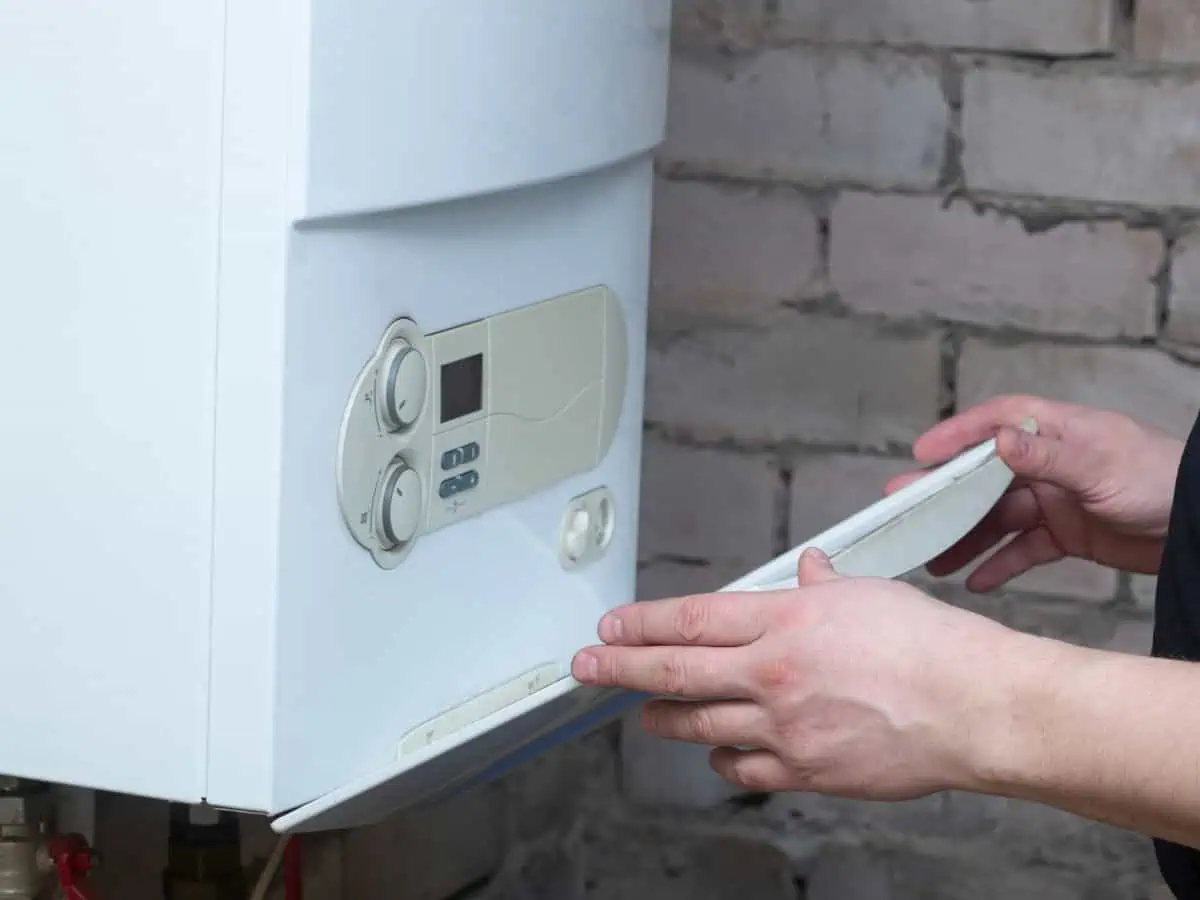
Troubleshooting: What You Can Do Before Calling for Help
While some causes of short cycling require professional attention, there are several steps you can take to diagnose and potentially resolve the issue yourself.
Start by checking your thermostat. Make sure it’s set to a reasonable temperature-typically between 18°C and 21°C for most homes. If your thermostat is battery-powered, replace the batteries and see if that makes a difference. Consider whether the thermostat’s location might be affecting its readings. If it’s in a drafty hallway or near a heat source, it may not be giving an accurate picture of your home’s overall temperature. Upgrading to a modern digital or smart thermostat can provide more precise control and help reduce unnecessary cycling.
Next, take a look at your boiler’s pressure gauge. If the pressure is below 1 bar, you may need to repressurize the system using the filling loop—your boiler’s manual will have specific instructions for this. If the pressure is too high, bleeding your radiators can help release excess pressure, but always do this when the system is cool to avoid burns. Keep an eye on the pressure over several days; sudden drops or spikes may indicate a leak or a problem with the expansion vessel. Also, check for a closed valve in the system, as this can prevent proper water circulation and cause the boiler to malfunction.
Bleeding your radiators is another simple maintenance task that can improve your system’s efficiency. Turn off your heating and allow it to cool, then use a radiator key to open the bleed valve at the top of each radiator. You’ll hear a hiss as trapped air escapes, followed by a steady stream of water. Close the valve once the water flows smoothly, and check your boiler pressure again, as bleeding can sometimes lower it. If problems persist, there may be an issue with the temperature control valve that requires professional attention.
Clogged filters can also cause problems. If you’re comfortable doing so, consult your boiler’s manual to locate and clean or replace any filters. Always turn off and isolate the boiler before attempting this, and follow the manufacturer’s instructions carefully.
Smart Thermostats and Efficiency
Smart thermostats can help improve the efficiency of a boiler and reduce energy consumption. By learning the heating habits of a household, a smart thermostat can adjust the temperature settings to optimize energy usage. A smart thermostat can also help prevent short cycling, which can increase heating bills and reduce the lifespan of the boiler. Installing a smart thermostat for your combi boiler can be a cost-effective way to improve the efficiency of a boiler and reduce energy bills.
Repair and Replacement Options
When a boiler breaks down, it’s essential to consider the repair and replacement options. A Gas Safe registered engineer can help diagnose the problem and recommend the best course of action based on your boiler model . In some cases, repairing the boiler may be the most cost-effective option, while in other cases, replacing the boiler may be necessary. Understanding the repair and replacement options can help homeowners make informed decisions about their boiler. Regular maintenance, such as checking the boiler’s pressure gauge and heat exchanger, can help prevent boiler problems and reduce the need for repairs.
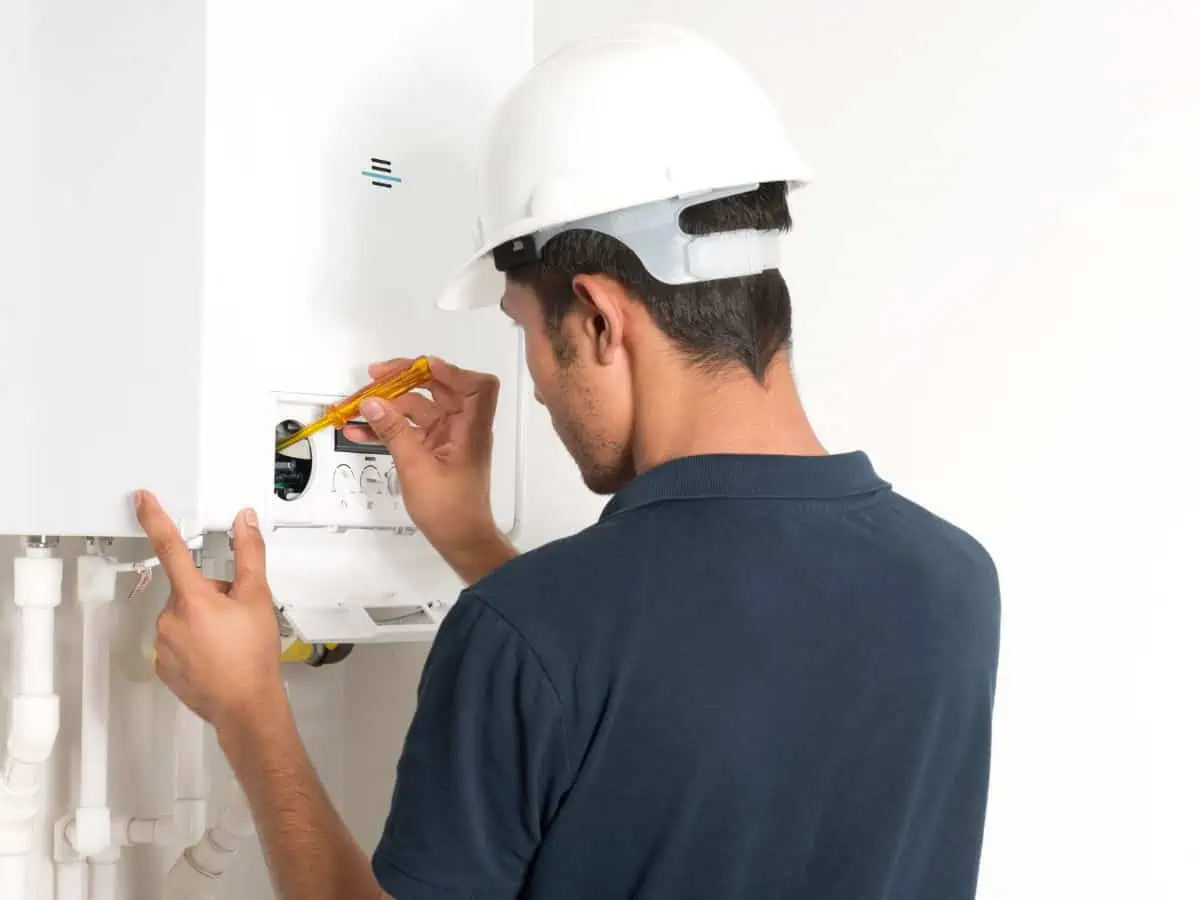
When It’s Time to Call a Gas Safe Registered Engineer
If you’ve tried these basic troubleshooting steps and your boiler is still short cycling, it’s time to bring in a Gas Safe Heating Engineer. There are certain warning signs that should never be ignored, such as the smell of gas, a carbon monoxide alarm going off, water leaking from the boiler, or unusual noises like banging or whistling. These could indicate serious safety issues that require immediate professional attention.
Professional engineers have the tools and expertise to diagnose more complex problems, such as faulty printed circuit boards, gas valves, pumps, and pressure vessels. They can also assess whether your boiler is simply too old or inefficient to justify further repairs. If your boiler is more than 10 years old and experiencing persistent issues, upgrading to a modern condensing boiler could save you money in the long run. Condensing boilers can achieve efficiencies of up to 99%, compared to a maximum of 85% for conventional models.
The Importance of Regular Maintenance
Preventing short cycling is always better than having to fix it. Proper maintenance, along with boiler cover plans, is the key to keeping your boiler running smoothly and efficiently. Annual servicing by a qualified engineer can catch potential problems early, clean out limescale and sludge, and ensure all safety features are working as they should. Even a small buildup of soot or scale can increase your fuel usage by 3-9%, so keeping your system clean pays off in lower bills and fewer breakdowns.
Get to know your boiler’s normal operation. Listen for changes in the sounds it makes, track your energy usage, and check the pressure regularly—especially during the heating season. In hard water areas, consider installing a magnetic filter or a water softener to protect against limescale, and use chemical inhibitors as recommended by your engineer. Modern heating controls, such as smart thermostats, the pre heat function, and weather compensation systems, can also help reduce short cycling by adjusting your boiler’s output to match your home’s needs more precisely.
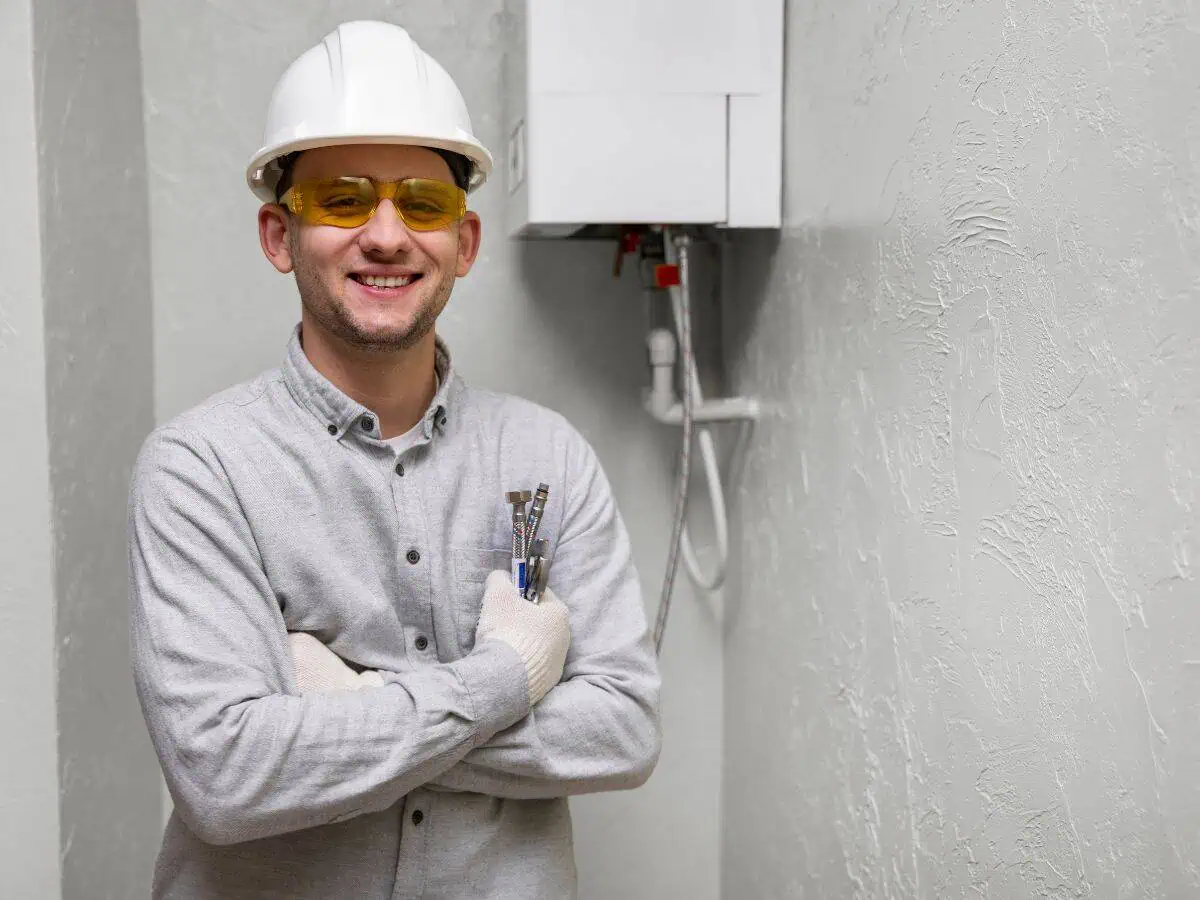
Why Professional Help Matters
While DIY maintenance can go a long way, some issues are best left to the experts. Hiring a qualified heating engineer is crucial for diagnosing and resolving various boiler system issues, such as short cycling, valve problems, and water pump malfunctions. GasSafe registered engineers are trained to handle the complexities of modern boilers and can ensure that any repairs or upgrades are carried out safely and in compliance with regulations. They can also advise you on the best maintenance schedule for your system and recommend upgrades that could improve efficiency and comfort.
At Premier Gas, we’ve been helping homeowners in Newcastle and the North East keep their homes warm and safe for over 20 years. Our team of experienced engineers can quickly diagnose and resolve combi boiler fires and short cycling, whether it’s a simple fix or a sign that it’s time for a new system. We offer annual boiler servicing, emergency repairs, and expert advice on the latest energy-efficient technologies.
Conclusion: Take Action for a Warmer, More Efficient Home
Boiler short cycling is more than just a nuisance—it’s a sign that your heating system needs attention. By understanding the common causes and taking proactive steps to maintain your boiler, you can enjoy a warmer, more comfortable home and lower energy bills. Don’t ignore the warning signs; if your boiler keeps turning on and off, take action today. Whether you need advice, a repair, or a full system upgrade, Premier Gas is here to help. If your boiler is aging and repairs are becoming frequent, consider a boiler replacement for better efficiency and long-term savings. Reach out today and let’s bring lasting warmth and efficiency back to your home. Your boiler’s next cycle should be a smooth one-start it with us.

